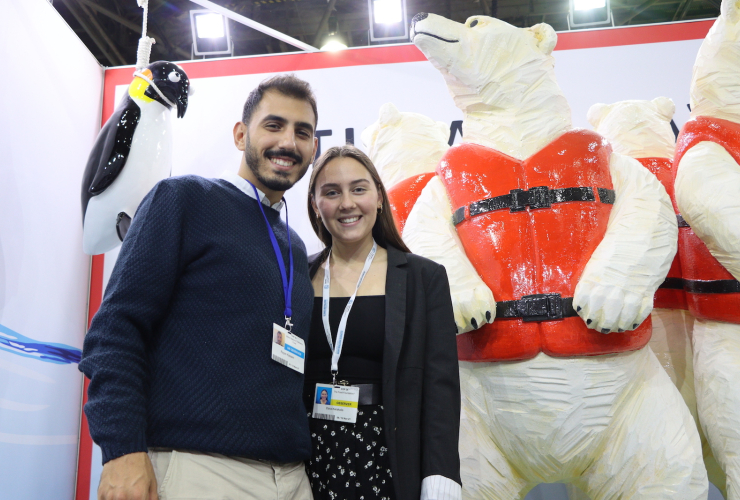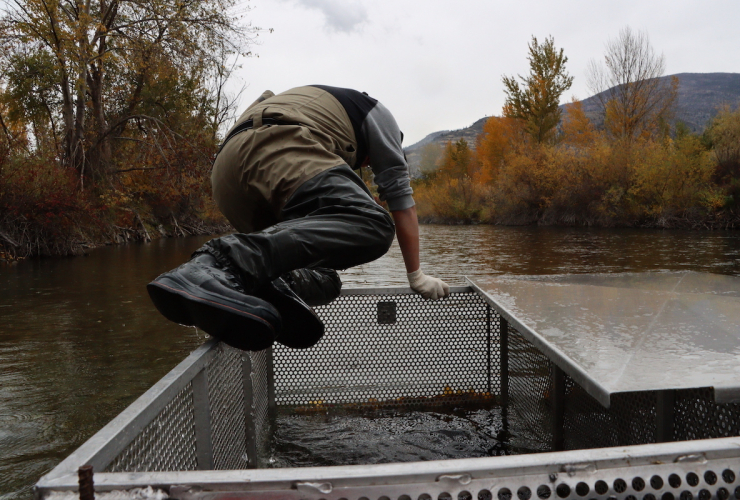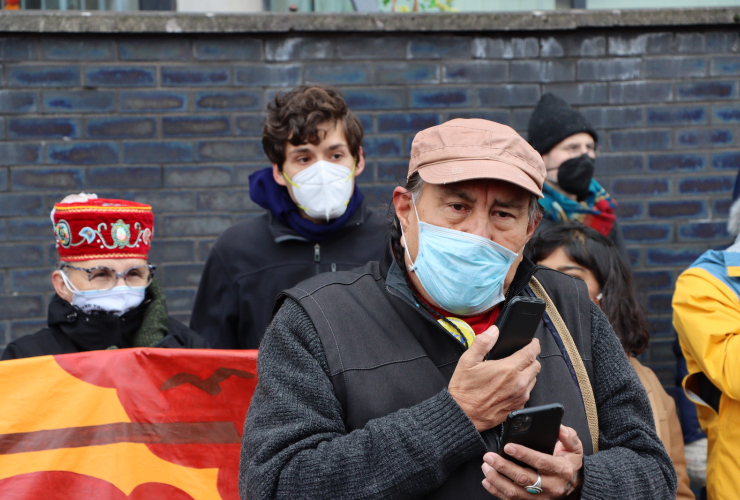Marc Fawcett-Atkinson

Journalist | Vancouver |
English
French
About Marc Fawcett-Atkinson
Marc Fawcett-Atkinson is a reporter and writer covering food systems, climate, disinformation, and plastics and the environment for Canada’s National Observer.
His ongoing investigations of the plastic industry in Canada won him a Webster Award's nomination in environmental reporting in 2021. He was also a nominee for a Canadian Association of Journalists's award for his reporting on disinformation.
Marc has previously written for High Country News, the Literary Review of Canada, and other publications on topics exploring relationships between people and their social and physical environments.
He holds an M.A. in journalism from the University of British Columbia and a B.A. in Human Ecology from the College of the Atlantic.
These 20-somethings say climate action must involve food security, too
Food activist Rayan Kassem says action on climate change shouldn't be separated from issues like hunger which will only get worse in a warming world.
Focus on food technology at climate conference ignores what most of the world’s farmers need, experts say
Forty-five governments led by the U.K. pledged Saturday to spend billions on transforming the world's farms, fisheries and forests in an effort to make our food more sustainable.
Canada to fund forests, farms, and coastlines in climate efforts
Canada has committed to spending over $1 billion to help developing countries protect their coastlines, forests, and other natural ecosystems in an effort to combat climate change.
"What's the point of serving plant-based foods that people (don't like), and never want to eat plant-based again?"
With previous climate conferences coming under fire for serving unsustainable meals, the organizers of this year's United Nations meeting in Glasgow, Scotland, have highlighted efforts to serve climate-friendly meals. But critics say those measures — and the food itself — aren't enough to emphasize the urgent role food plays in saving the planet.
Should food play a bigger role in climate action? These experts say yes
When it comes to ending climate change, international climate negotiations have typically focused on ending the world's reliance on fossil fuels. Food — responsible for about a third of the world's emissions and vulnerable to a chaotic climate —has largely flown under the radar.
These cities and towns have food at the heart of their climate plans. Why don’t nations?
Over 100 cities, towns, and other regional governments worldwide informally launched a pledge Wednesday to put food at the heart of their climate plans — even as their national counterparts have failed to do the same.
Canada and U.S. to invest heavily in ‘climate-smart’ agriculture
On Tuesday, Canada backed a controversial initiative aimed at boosting countries' support for high-tech farming methods designed to reduce emissions and mitigate the impacts of climate change on farms and food.
Are lab-grown chicken nuggets actually more sustainable?
Last year, a restaurant in Singapore made headlines when it became the first place in the world to serve lab-grown meat. With meat and dairy responsible for roughly a sixth of global emissions, the U.S. company behind the pricey plates of artificial chicken nuggets, Eat Just, branded them "a revolutionary step towards solving climate change."
Outrage over North American oil pipelines slows Glasgow's streets
Protesters briefly disrupted traffic outside the main gates to the COP26 climate conference in Glasgow, Scotland, on Monday to highlight the refusal of Canada and the U.S. to block new oil and gas projects.
Why fertilizers are worse than flights when it comes to climate
Artificial fertilizers used widely on fields in Canada and worldwide are responsible for almost a third more greenhouse gas emissions than the global aviation industry, new research has found.










